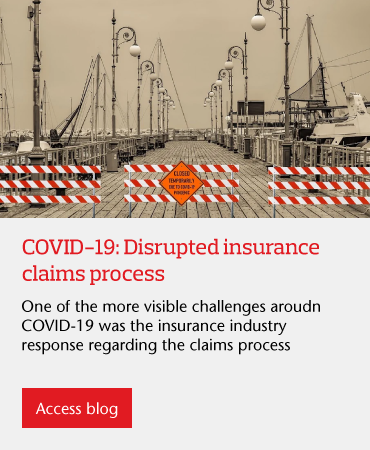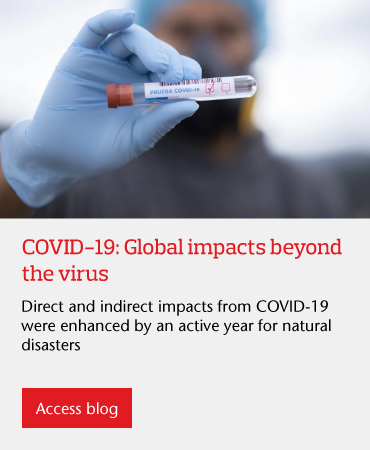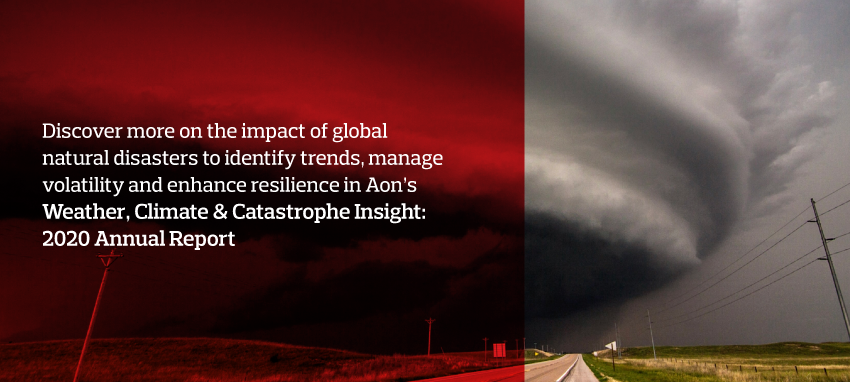
Steve Bowen
Director & Meteorologist | Head of Catastrophe Insight, Impact Forecasting, Aon
The prospect of a pending natural disaster and the post-event recovery/response is always a difficult endeavor for even the best prepared countries. The volume of natural disaster events in 2020, including several that had widespread impact across multiple states / countries, led to above-average disaster costs and forced federal governments to tap into already depleted emergency funding to account for the many billions of dollars (USD) in non-insured damage and recovery aid.
Perhaps the most challenging aspect for local and federal officials, even beyond the fiscal requirements, was the planning process around large-scale evacuations and post-event temporary housing procedures in the COVID-19 environment. Many countries enacted social distancing and strict screening guidelines that required new evacuation center set-ups that limited the number of evacuees per facility. The lack of facilities led to many people being sent by organizations to non-traditional displacement shelters for longer-term housing, most frequently a hotel. In other cases, regions facing tropical cyclones or inland flooding placed COVID-19 patients in “emergency hospitals” that were often identified in high-risk hazard areas. These unintended consequences put heightened strain on the need for quick and complex resilience planning. The other difficulty was locating enough volunteers to aid and/or be deployed in the hardest-hit areas to begin the relief and recovery process. Organizations such as the International Federation of Red Cross and Red Crescent noted some regional spikes in volunteer sign-ups, but many were asked to respond to disasters virtually and often to provide mental health support. The frequency of larger-scale events, notably in the United States, Central America, and Asia, stretched resources thin.
Access blogs




About the author
Steve Bowen currently serves as Director, Meteorologist, and the Global Head of Catastrophe Insight at Aon, and is based in the Impact Forecasting division. An increasingly important part of his work includes providing expertise to new strategies focused on combating the growing hazard, physical, societal, and financial challenges posed by climate change. He is a frequent collaborator with governmental agencies, academia, and industry groups, and has co-authored several published peer-reviewed scientific studies (including in the Bulletin of the American Meteorological Society, Nature Climate Change, and the Journal of Insurance Regulation). He was previously invited to participate in a White House initiative that sought to better prepare various sectors for emerging risks associated with climate change and extreme weather.
Steve serves on the Board of Directors for the American Red Cross of Illinois, and also sits on the Society of Actuary’s Research Executive Committee and Climate & Catastrophe Steering Committee.
